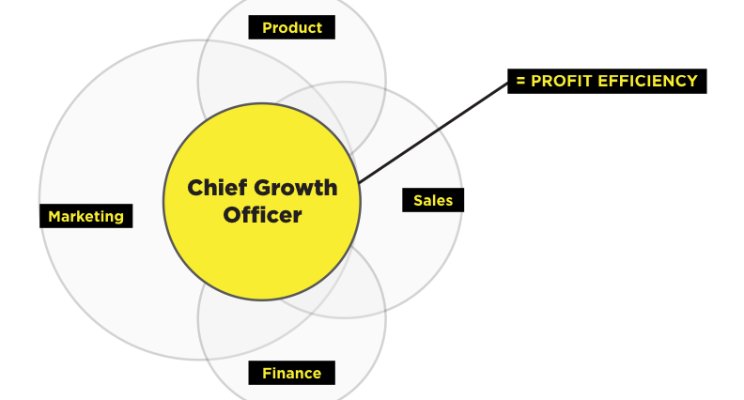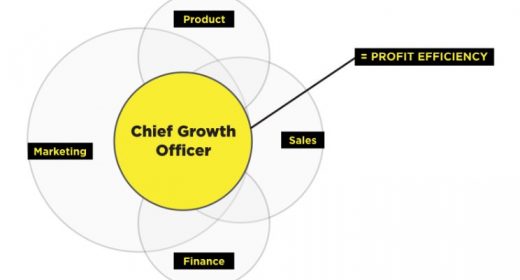The Threat to the Traditional CMO – Will the Chief Growth Officer Replace the Chief Marketing Officer?
— April 7, 2017
Global beverage brand Coca-Cola recently announced its decision to replace CMO Marcos de Quinto, who was with the company for a little over three years, with two new roles: Chief Innovation Officer and Chief Growth Officer.
The CMO of today holds more responsibility than ever before, being key drivers of business strategy. With growing need to adopt digital technologies and deliver unique customer experiences, businesses are increasingly looking to their marketing departments, the ‘voice of the customer’, to drive business transformation.
The CMO is now “responsible for driving measurable, sequential growth in the current-state business and identifying and executing new opportunities to scale revenue via new channels, new markets, new products and new business models. They’re responsible for peering around corners and seeing ahead of the headlights, testing, learning, incubating the product, brand, and customer innovations for the future.” – Which5O
Coca-Cola’s decision is evidence of the company’s desire to innovate and to focus on growth, which is not a surprising move considering that soda consumption fell to a 30-year low last year. The beverage industry is having to adapt quickly to changing customer behavior.
The company’s focus on growth is evidence of a wider trend, impacted heavily by the startup marketing tactic of growth hacking.

Growth hacking as a movement stems from Sean Ellis, who coined the term “growth hacker” in a blog post in 2010 entitled “Find a Growth Hacker for Your Startup”, defining this new brand of marketer as “a person whose true north is growth. Everything they do is scrutinized by its potential impact on scalable growth.”
The term was popularized by Andrew Chen who wrote a blog post titled, “Growth Hacker is the new VP Marketing”. He cited Airbnb’s integration of Craigslist as an example of the growth hacking principle. He wrote that growth hackers “are a hybrid of marketer and coder, one who looks at the traditional question of ‘How do I get customers for my product?’ and answers with A/B tests, landing pages, viral factor, email deliverability, and Open Graph.”
From there, the buzzword grew into a trend.
Now the term has its own conference, a growing online community, and is impacting not only how startups market their products, but also threatening the traditional role of the CMO.
The biggest threat to the CMO right now is the future. As technology takes us one step closer to the ‘Digital Industrial Revolution’, the CMO role is not what it was a decade ago.
Who is the CMO of tomorrow?
A Business Leader
Due to the customer-focused nature of marketing, over recent years, the role of the CMO has been more focused on business strategy than ever before. Marketing as a function acts as the ‘voice of the customer’ within a business.
Historically, marketing has served sales. In this age of customer experience, the position of CMO on the board has become much more strategic, often absorbing the responsibility of overseeing both marketing and sales.
The CMO of the future will continue to be strategic, focusing on the long-term goal of increasing customer engagement, by improving customer service and offering unique customer experiences.
A CTO
With MarTech becoming increasingly important to marketing strategy, CMOs are increasingly looking to new digital technology to boost their efforts.
Artificial intelligence and machine learning technology is already having a huge impact on marketing trends and practices. With the uptake of messenger apps and ChatBots, this technology presents an incredible opportunity for the CMO in 2017. It’s 24/7, it creates personalized campaigns around the customer, it’s all-inclusive and it self-perpetuating.
Staying ahead of and understanding the impact of emerging technology will be a vital skill for the future CMO. Understanding how new technology contributes to the growth of a business, and using this knowledge to choose the right technology for the customer and the business will be vital to success for the CMO.
This focus on technology calls for the CMO to act more like or work closely with the Chief Technology Officer or Chief Information Officer.
A Face for the Customer
Traditionally, marketing has been a back-office function servicing sales. This has changed.
More and more we are seeing marketers step out from behind closed doors, interact directly with the customer, and in many instances, become the face of their brands.
The CMO of the future will be preoccupied with personalizing a brand’s interactions with the customer. This can only be effectively achieved with knowledge about the customer, which is best gathered from direct engagement with the customer themselves.
A Data Junkie
The CMO of the future will be driven by data. They’ll be fountains of knowledge, spouting useful facts and tidbits about the latest technology, the results of a recent marketing campaign, or changing consumer behavior.
The CMO needs to adopt data and fast. Instead of focusing on the tangible elements of marketing strategy like television commercials, advertising, branding, social media, or email, the CMO is learning to focus on the customer and data. These more intangible elements of marketing strategy will drive business strategy, as companies move closer to digital transformation.
A Growth Hacker
As startups continue to disrupt various industries, the CMO of the future will be agile. Adapting quickly to the latest buzzword or trend to maintain a competitive edge.
The CMO of the future will take growth strategies to heart and be masters in “the art and science of creating awareness, traction, adoption, and advocacy using unorthodox and surprising means. It’s quite literally a hack for traditional processes to accelerate business.” (Brian Solis)
Will CMOs be rebranded to Chief Growth Officers? Who can really be certain? What is certain is that the ‘voice of the customer’ in a business will be a key driver of strategy as digital transformation becomes an imperative.
Business & Finance Articles on Business 2 Community
(83)













